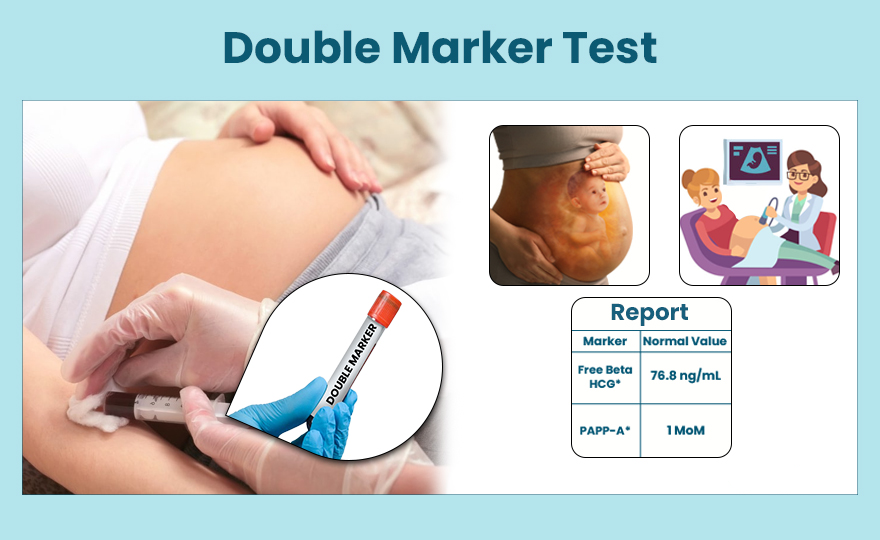
2024-01-24T07:02:15
The dual marker test, also known as the double marker test, is a prenatal screening test performed during the first trimester of pregnancy. It is part of the first-trimester screening for chromosomal abnormalities, particularly Down syndrome (trisomy 21), Edwards syndrome (trisomy 18), and Patau syndrome (trisomy 13). The dual marker test involves the measurement of two substances in the mother's blood: Free Beta-hCG (human chorionic gonadotropin): This hormone is produced by the placenta, and abnormal levels may indicate an increased risk of chromosomal abnormalities. PAPP-A (Pregnancy-associated plasma protein-A): This protein is also produced by the placenta, and low levels may be associated with an increased risk of chromosomal abnormalities. The combination of these two markers, along with the Nuchal Translucency (NT) measurement from an ultrasound, helps assess the risk of chromosomal abnormalities in the fetus. It's important to note that while these tests can provide an estimate of the risk, they are not diagnostic. If the results suggest an increased risk, further diagnostic tests such as chorionic villus sampling (CVS) or amniocentesis may be recommended for confirmation. To know more consult the Best Gynecologist Dr Swati Khandekar in Malviya Nagar Khamla Nagpur. #DualmarkerTest #whydualmarkertestrecommendedbydoctors #bestgynecologist #DrSwatiKhandekar #TopGynecologistinmalviyanagarkhamlanagpur #no1gynecologistmalviyanagar

